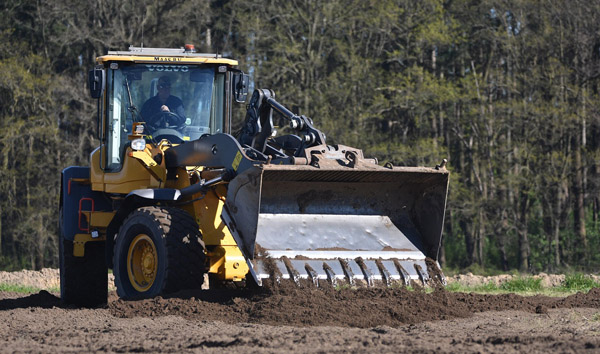Revolutionizing Heavy-Duty Operations: The Diesel Rough Terrain Forklift
2025-07-06 03:40:32
### Introduction to Diesel Rough Terrain Forklifts Diesel rough terrain forklifts are engineered for durability and performance in uneven or rugged landscapes. Unlike standard forklifts, these machines feature reinforced tires, high-torque diesel engines, and enhanced stability systems. Industries such as construction, agriculture, and logistics rely on diesel rough terrain forklifts for their ability to navigate mud, gravel, and steep inclines with ease.
### Key Features and Technical Specifications The diesel rough terrain forklift stands out due to its powerful engine, typically ranging from 50 to 150 horsepower, ensuring optimal performance under heavy loads. Key specifications include: - Load Capacity: 5,000 to 15,000 lbs - Tire Type: Pneumatic or solid rubber for superior traction - Lift Height: Up to 20 feet, ideal for stacking materials on uneven ground These forklifts also incorporate advanced hydraulic systems, allowing precise load control even in unstable conditions. The diesel rough terrain forklift’s rugged design minimizes downtime, making it a cost-effective solution for demanding operations.
### Industry Applications and Market Trends The versatility of the diesel rough terrain forklift has led to widespread adoption across multiple sectors: - Construction: Handling heavy materials like steel beams and concrete blocks - Agriculture: Transporting bulk feed, hay bales, and equipment - Forestry: Moving logs and timber in rough terrains Market data indicates a steady 6% annual growth in demand for diesel rough terrain forklifts, driven by infrastructure development and increased mechanization in agriculture. Manufacturers are also integrating telematics and emission control technologies to meet stricter environmental regulations.
### Operational Advantages Over Electric Models While electric forklifts are gaining traction, the diesel rough terrain forklift remains unmatched in certain scenarios: - Longer Runtime: No need for frequent recharging, ideal for remote job sites - Higher Torque: Better performance in muddy or sloped environments - Lower Initial Cost: Reduced upfront investment compared to electric alternatives However, operators must consider fuel costs and emissions, as diesel rough terrain forklifts are less eco-friendly than their electric counterparts.
### Conclusion The diesel rough terrain forklift continues to be a vital asset for industries operating in harsh conditions. Its power, durability, and adaptability ensure efficient material handling where other equipment falls short. As technology evolves, hybrid and cleaner diesel models may further enhance its sustainability without compromising performance. For businesses requiring reliable heavy lifting in challenging terrains, investing in a diesel rough terrain forklift remains a strategic decision.













